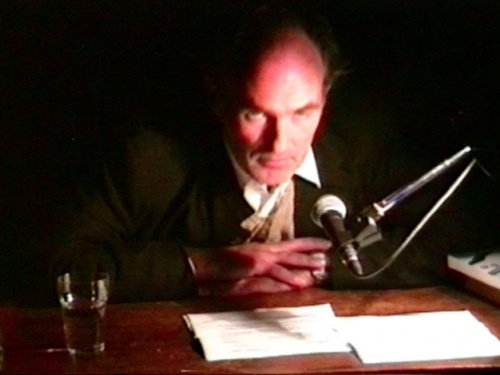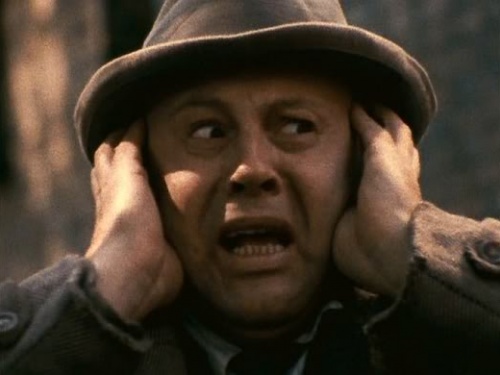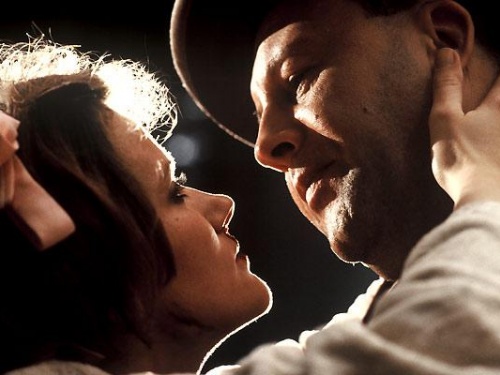Interview with Paul Smith: Subversion In The Street of Shame
In advance of the Subversion In The Street of Shame event on 28 September, Paul Smith, instigator of the original event as well as the 70x 70 project which saw Iain Sinclair curating a mammoth film programme across London last year, answers some questions.
Known primarily as founder and manager of Blast First, the record label he launched to introduce Sonic Youth to the UK, Smith developed an interest in spoken word recordings and events which led to the formation of Blast First Petite.
How would you describe yourself and what you do? And why do you do it?
In the nurture/nature school I had no real artistic context but liked 'art' - so I like to try to help those that do have talent. I was late in life coming to this revelation; I've had a couple of 'straight jobs' - this one is, for me, a better way to spend my life.
What prompted your move from music into setting up a spoken word label, and organising spoken word events? Were you interested in a sense of musicality or rhythm in how writers read, or was it more generally in their ideas?
At the time of the "Subversion" events and catalogue these were funded as the 10th anniversary of my record label Blast First (Sonic Youth / Steve Albini / Butthole Surfers / Dinosaur Jr / Glenn Branca / Sun Ra etc) which had been running "Disobey", a small monthly multi-media club. Being actively involved in music I was initially drawn to writers reading as personal relaxation. There was some influence from bands too; post-punk (Joy Division/Cabaret Voltaire etc) referenced certain writers (Ballard/Burroughs) and later Sonic Youth, who were all voracious readers, their tour van was more like a mobile library!
I had not taken much advantage of or had success with the 70's school system. But I found if I heard the cadences of writers reading their work then their writing was much more vivid to me. Once you had their voice in your head you read the work in that voice. While of course writers expend much energy describing their characters, I much preferred enhancing the link to the writer's own personality.
Organising the events came from my contacting and meeting Iain Sinclair who, coming from the Beat tradition, had embraced multi-media events as part of his work and was very drawn by using the 'sense of place'.
From my music work I had some skills in that area so I was able to bring some of that knowledge to bear. Publishing and publishers seemed to be still be operating in a very tweedy, black & white world at the time compared to the music world.
Writers being singular are much easier to work with than a band's multi-ego.
The ICA is quite an overground place compared to some of the venues you’ve organised events at in the past. What’s the situation with ‘underground’ events today? Is it really possible or desirable to do them, or is there more of a need for the ‘underground' to be acknowledged above ground without being commercialised?
I'm more of a 'by any means necessary' kind of a fellow - both formats have their strictures firmly in place, both have their uses. Is for instance "Secret Cinema" an underground success story or a bunch of wanna-be West End impresarios? Personally I think if you can take an artistic idea into a broader cultural awareness without too much interference then all the better.
Certain types of people always enjoy the discovering and that will always be there, although that idea has been absolutely trampled to death by main stream marketing - limited edition chocolate bars and the blitzkrieg colonisation of social media.
Is predictive shopping expanding your choices or a form of control?
But this kind of Underground/Overground terminology is a bit suspect anyway, in that much of what people now choose to label 'underground' was (re-)born out of the 80's rave culture (illegal clubs / squatting etc), which in turn had grown out of ideas and actions of the 60's counter culture whose basis was more politically engaged. So such terms are pretty redundant now - the internet and social media having created a gigantic flat plain of cultural awareness and associated information/option fog.
You STILL tend to end up with more bums on seats if you can get the event promoted in the Guardian.
For younger readers, could you maybe say a little about what was being subverted in the Streets of Shame event, and whether you think the event succeeded in that?
The Streets of Shame were defined by the 1950 to 1980's area around Fleet Street in London. Back when London was born of villages, gatherings of specific craft businesses, which in this case were where all the pre-electronic national newspapers were once sited. Scene of hard nosed, hard drinking hacks chasing a story, whispers, bribes, and knowing looks, the occasional flash photos. Dirt on the powerful, rich and famous!
As to the subversion - as per the aforementioned strictures, this was a wholly "underground" event thus we preached to the converted although looking back it was when it was a very 'rare church' indeed at that time. Well attended throughout, it was a success, though I doubt many were subverted.
The event was entirely one of Iain's great visions (he always seemed to have an eye on the long game), a gathering together of a clan of disjointed writers that he possibly felt represented some kind of alternative "truth" to that which had more famously taken place in the area.
Most likely to be footnoted by young obsessives as possibly Alan Moore's first ever London performance (citation needed), probably one of Kathy Acker's last readings in the UK, and certainly the last ever public reading by Derek Raymond/Robin Cook as he died about ten days later. He knew he was very ill, and he made a incredible effort just to be there as he said "amongst my own people".■
Unlicensed Preaching: A Life Unpacked In 70 Films takes place on Sunday 28 September at 7.50pm
This article is posted in: Events, Interviews
Tagged with: Paul Smith, Iain Sinclair, 70x70





